Episodes
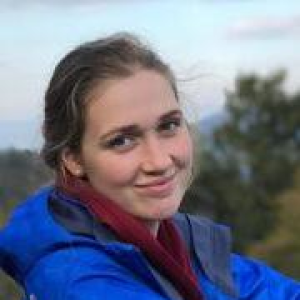
Monday Aug 09, 2021
Episode 130 - Natasha Toghramadjian’s Research into Earth-Shaking Impacts
Monday Aug 09, 2021
Monday Aug 09, 2021
- Welcome to this 130th episode of our podcast. Here’s a lively conversation between two geoscientists—testifying to the opportunities for Society of Catholic Scientists (SCS) members to enjoy discussions which are at once elevated by their personal values and grounded in their diverse, expert explorations of God’s creation.
- Paul spoke with Natasha Toghramadjian, a Ph.D. student in geophysics—and seismology in particular—at Harvard University. She performs wide-ranging research on earthquake dynamics and risks in California and around the world. She spent a year in Armenia on a US Fulbright research grant to design a study on future earthquakes there and the connection between risk preparedness and regional politics.
- Toghramadjian, a student member of the SCS, was a speaker at the 2021 national conference in Washington, DC. See the video of her talk here, at about the 7-hour, 19-minute mark. The talk was titled, “Earthquakes, their Consequences, and the Jesuit Pioneers of Seismology.”
- This podcast conversation included Toghramadjian’s mentions of the earthquake hazards in Oklahoma and the Newport-Inglewood Fault in California, considered more dangerous than the San Andreas Fault for the Los Angeles region. A note from Natasha: at one point just before the 16 minute mark, she said "40 meters" when she meant "40 miles onshore."
- She discussed with Paul the common but wrong view that we hold Christian beliefs despite natural evidence. Scientists use natural evidence, including the enduring laws of physics, chemistry, and biology, in their attempts to understand God’s creation more fully. The two agreed that science and religion are in harmony as paths for pursuing the truth amid great mystery.
- A “keeper” quote from Toghramadjian: “Every human you encounter is an imperfect representation of whatever they say they stand for. . . . It’s very easy to point to a bad example, a person, rather than point to the source material that we’re all trying to follow but we all inevitably fall short of because we’re fallen.”
Show notes prepared by TSSM co-host Bill Schmitt
Sunday Aug 08, 2021
Bonus Episode - WOFI Faith & Science Summit
Sunday Aug 08, 2021
Sunday Aug 08, 2021
Word on Fire will be holding a Faith and Science Summit August 9-12 (starting tomorrow!). It will feature at least nine speakers, including the SCS' own Jonathan Lunine and Karin Oberg.
Among the topics discussed will be
- The history of the Church and science, including a wealth of details that get glossed over by the "conflict hypothesis"
- Specific coverage of what went wrong between the Pope, cardinals, and Galileo, and why that's far from a typical example of how the Church treats scientists
- The counterexample of George LeMaitre
- Theological motivations *for* doing science from the perspective of the Christian faith
- Insights from science that have enriched our appreciation of creation, the physical universe, and our own human origins
- Catholic theology and speculation about the possibility of extraterrestrial life
Find out more at:
https://wordonfire.institute/faith-and-science-summit
If you're a Word on Fire Institute member:
https://wordonfire.institute/faith-and-science-summit-wofimembers
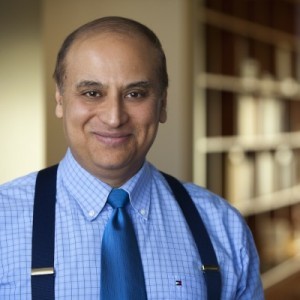
Monday Jul 12, 2021
Episode 129 - Economics of Higher Purpose with Anjan Thakor
Monday Jul 12, 2021
Monday Jul 12, 2021
An intriguing interview with a business school professor from Paul's alma mater, Anjan Thakor of the Washington University in St. Louis Olin Business School. The point of departure for this episode is Prof. Thakor's book of the same title written with Dr. Bob Quinn, and the book was launched as an analysis of why Dr. Quinn left a prestigious faculty position at the University of Michigan to go start a church in Australia.
The book and our interview discuss what seems as if it should be common sense: people perform better when they believe what they're doing has a higher purpose than extracting paychecks and profit. Yet this common sense observation is now counter to decades of economic orthodoxy, both in the "practical" world and in academia, which focus on evaluating ways for employers to control and coerce employees using the tools of the market system. And it's not entirely surprising, since in many ways human nature is always poised to devolve into this style of interaction. Listen in and, if you're anywhere near as intrigued by this work as I was, read their book for more.
- Thakor co-authored The Economics of Higher Purpose: Eight Counterintuitive Steps for Creating a Purpose-Driven Organization with Robert Quinn, business professor emeritus at the University of Michigan.
- Thakor referred to a University of Michigan study of call-center workers. They came away with a higher sense of purpose—and effectiveness—after talking with students who had received scholarships based on fund-raising efforts in which the workers were participating. If you change a worker’s mental map for seeing their job, this affects their performance.
- Authenticity requires a business leader’s believable commitment to—and passion about—the organization’s higher purpose, Prof. Thakor said. He also referred to insights from Rabbi Jonathan Sacks about the importance of societal and organizational motivation stemming from a sense of covenant, not merely contract. Covenant entails a sense of shared purpose.
- Noted business executive Bob Chapman says 88 percent of American workers say they want a sense of higher purpose but don’t feel it is integrated in their work life. Thakor said his own research shows that employees whose companies have a sense of purpose are more likely to describe a sense of purpose in their lives—a spillover effect.
- The commitment to purpose must be top-down. Then, it cascades through the organization if you help employees learn and absorb what it means for them and their job, Thakor said.
- Harvard Business Review had a special issue on the importance of a sense of purpose.
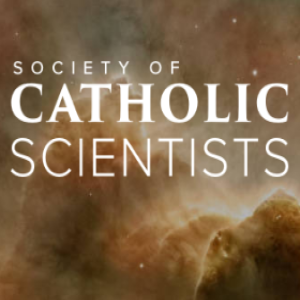
Tuesday Jun 08, 2021
Episode 127 - SCS Meeting 2021
Tuesday Jun 08, 2021
Tuesday Jun 08, 2021
Paul and Bill provide an on the scene review of the Society of Catholic Scientists Conference 2021 at the Washington, D.C. Hilton. The themes were Extraterrestrial Life, Artificial Intelligence, and Minds beyond the Human.
As an added service, here are some links provided by the after dinner speaker, Jennifer Wiseman, to works and groups dedicated to faith - science dialogue:
Book: "The Book of the Cosmos: Imagining the Universe from Heraclitus to
Hawking" (Editor Prof. Dennis Danielson, UBC; Perseus, 2000)
Book: "The Language of God", by Francis Collins (Director of the U.S. Human Genome
Project; Free Press, 2006)
Organizations and Websites:
Society of Catholic Scientists! catholicscientists.org
Dialogue on Science, ethics, and Religion (DOSER), American Association for the
Advancement of Science: aaas.org/doser
sciencereligiondialogue.org
Sinai and Synapses: sinaiandsynapses.org
American Scientific Amilation (ASA) asa3.org
(network of scientists, engineers, teachers, and science enthusiasts Interested in
the relationship of science and Christian faith)
Biologos.org
Science for the Church: scienceforthechurch.org
Scientists in Congregations: scientistsincongregations.org
Faraday Institute for Science and Religion: www.faraday.cam.ac.uk
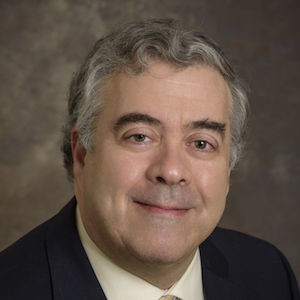
Monday May 31, 2021
Episode 126 - Society of Catholic Sciences Preview with Stephen Barr
Monday May 31, 2021
Monday May 31, 2021
- Paul and Bill welcomed Stephen Barr, Ph.D., president of the Society of Catholic Scientists (SCS), for a return visit to TSSM. Dr. Barr, a theoretical particle physicist, is emeritus professor in the Department of Physics and Astronomy at the University of Delaware. We talked with him about the Society of Catholic Scientists and the organization’s fourth annual conference, scheduled June 4-6, 2021, in Washington, DC.
- The growing membership of SCS now totals about 1,500 in multiple countries. The organization was founded in 2016 by Dr. Barr and five other scientists. Barr, author of Modern Physics and Ancient Faith, described the upcoming conference, which is titled “Extraterrestrials, AI, and Minds Beyond the Human.” See details of the conference The SCS has posted an announcement about live-streaming of conference talks for those who have not registered to attend in-person.
- The talks will be livestreamed at https://catholicscientists.org/conference2021. The schedule of talks can be found HERE. During the talks, questions for the speakers can be emailed in to questionsSCS2021@gmail.com. As time permits, some questions will be selected from those emailed in and posed to the speakers during the Q&A sessions.
- Barr gave an overview of the event and the speakers.
- One of the speakers, Prof. Lawrence Principe, Ph.D., will also be the recipient of the Society’s Saint Albert Award. The award, bestowed annually, is named for St. Albert the Great, patron saint of the natural sciences. Dr. Principe, a historian of science at Johns Hopkins University, has been a leading voice in dispelling the myth of a historical conflict between science and religion, Dr. Barr pointed out. A course titled “Science and Religion” is offered by Principe through the “Great Courses” organization and is available online.
- The conference’s keynote speaker is Christopher Baglow, Ph.D., director of the Science & Religion Initiative in the McGrath Institute for Church Life at the University of Notre Dame. Dr. Baglow, whose unique high school textbook Faith, Science, and Reason: Theology on the Cutting Edge has now been published in a second edition, was a guest on a previous episode of the TSSM podcast.
- Barr pointed out that, although the Society did not hold a conference in 2020, it greatly expanded its website, which now includes instructional materials about science and religion. One feature is a curated historical collection of concise bibliographies about important scientists who were practicing Catholics. Barr thanked his collaborator Andrew Kassebaum for that content, which is more authoritative than other online lists of “Catholic scientists.”
- The SCS continues to work to expand its services to teachers and students. The SCS website, at org, already contains numerous videos of talks from past conferences. Dr. Barr said the Society’s goals include facilitating wide-ranging intellectual and spiritual fellowship for Catholic scientists and helping to evangelize a secular culture that is infused with thoughts and messages prioritizing science and technology. The work of spreading the faith through science will increasingly use new media.
- Another form of evangelization is the Society’s support for Church celebrations of “Gold Masses” in numerous localities in the United States and elsewhere. Gold Masses, often planned as Votive Masses in honor of St. Albert the Great, are celebrated for members of the science professions. The Masses are part of the effort to increase the Society’s grass-roots activities through local and campus chapters.
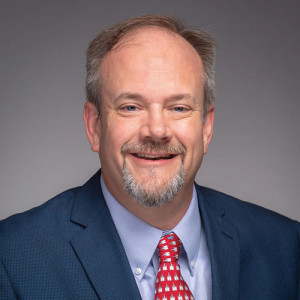
Tuesday May 11, 2021
Episode 125 - Chris Baglow and Jay Martin (rerun, full episode)
Tuesday May 11, 2021
Tuesday May 11, 2021
- Paul and Bill are proud to present this encore episode featuring the Science and Religion Initiative featuring the Science & Religion Initiative program conducted by the McGrath Institute for Church Life at the University of Notre Dame. In 2019, we interviewed Chris Baglow, Ph.D., director of the program, which equips Catholic high school educators with big-picture insights and detailed tools to communicate effectively regarding the complementarity of faith and reason, science and religion.
- We spoke with Prof. Baglow about topics covered in his recently published book, the second edition of Faith, Science, & Reason. He will be keynote speaker at the 2021 conference of the Society of Catholic Scientists, scheduled for June 4–6 in Washington, DC. Find information about the conference
- We also spoke with Jay Martin, Ph.D., a scholar in systematic theology who was the Science & Religion Initiative’s assistant director and is now Assistant Teaching Professor in Notre Dame’s Department of Theology.
- The initiative, with support from the Templeton Foundation, encourages a coordinated approach to educating young Catholics, helping them to avoid the trap of a focus on science as an exclusive source of truth and “real” knowledge. Such a focus can drive students away from the Catholic Church’s wisdom and values if it dismisses religious faith as meaningless—not worth serious engagement in their minds and hearts.
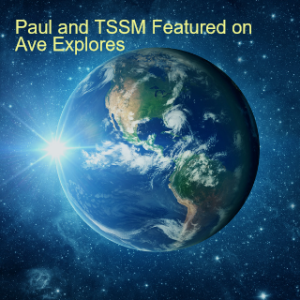
Friday Apr 30, 2021
Paul and TSSM Featured on Ave Explores
Friday Apr 30, 2021
Friday Apr 30, 2021
Paul had the privilege to be interviewed for the Ave Explores podcast series on faith and science. Check out the episode here:
https://www.avemariapress.com/aveexplores-faith-science/podcast-giesting
Thanks to Katie Prejean McGrady and Erin Pierce with Ave Maria Press for this unique opportunity!
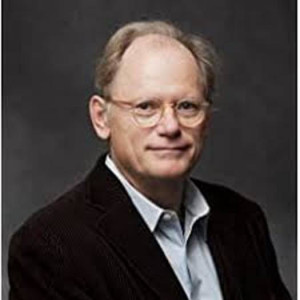
Monday Apr 12, 2021
Monday Apr 12, 2021
Bill and I are excited to bring you an episode about the archeology and secular history of the time when Jesus was born, grew up, and preached. Fuller notes to come on our episode with Dr. Jean-Pierre Isbouts, author of In the Footsteps of Jesus.
- Jean-Pierre Isbouts, Ph.D., is a best-selling author, historian, and filmmaker who has invested decades of work in to understand and explain the Biblical foundations of Christian faith from an interdisciplinary perspective. His career as a humanities scholar began with his doctoral degree from the University of Leiden in the Netherlands. He is a professor of human development at Fielding Graduate University in Santa Barbara, CA.
- Isbouts’s latest book, published in 2017 by National Geographic, is In the Footsteps of Jesus: A Chronicle of His Life and the Origins of Christianity. In addition to reading his books, you can take his course, “The History and Archaeology of the Bible” through the Great Courses library of products. He has made several notable films, and he recently has posted a series of videos embodying his new book, available by searching his name on Vimeo.
- Isbouts talked with Paul and Bill about key findings that help to increase public understanding of the historical context of Jesus’ life and how he loves to deepen that understanding through visual images of lands where Jesus taught, plus explorations in maps, art, archaeology, and more. His book features a beautiful collection of images.
- The discussion with TSSM looks into Jesus’ background, which is much more extensive than the typical label of “carpenter.” He notes that Jesus’ role in rebuilding the city of Sepphoris presaged his message of action and solidarity aimed to build the Kingdom of God. The times during which he taught on earth were filled with social and economic chaos, when the rule of Herod and his son decimated the economy of Galilee and displaced thousands of peasants in severe poverty.
- These historic times, Dr. Isbouts points out, resonate with readers today during a period of pandemic and polarization. We need to hear again Jesus’ call to come together as citizens of the Kingdom to practice basic principles of the Torah—compassion, social justice, and total faith in God as Father. Dr. Isbouts himself says his studies have drawn him closer to the figure of Jesus and “what fired his ministry.” The application of various fields of scholarship helps to tear down walls that many people today see dividing the worlds of science and faith.
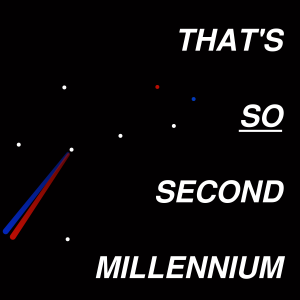
Monday Mar 22, 2021
Episode 122 - Original Sin and Mental Unhealth
Monday Mar 22, 2021
Monday Mar 22, 2021
Paul and Bill discuss some of the ways in which human minds go wrong. Paul wonders aloud whether the state of spiritual disconnection called "original sin" is specifically manifested in the ways parents relate, or don't relate, to children and the problems that follow from that for the rest of our lives. We discuss Henri Nouwen (a little) and Eckhart Tolle (a little more) and his ideas on how enlightenment has cropped up here and there throughout history but gets suffocated by social conformism.
- Paul and Bill discussed a number of resources for pondering the nature of sin and how it affects our lives—as well as how people act based on their perceptions of sin in themselves and others. Without the Church’s wisdom and reliance on Christ’s grace, behaviors based on a misunderstanding or dismissal of sinfulness can distort our lives as individuals, in our minds and hearts, as well as our lives in society.
- The co-hosts concluded that we need to invest time throughout our lives to discern how sin—and a need for forgiveness and grace which is poorly grasped in secular society—in integrated in our mental and spiritual health. We cannot just set aside the matter of original sin and our ongoing inclination toward evil. We tapped into the Catechism of the Catholic Church, especially the paragraphs around #400 and beyond, for guidance to sort this out.
- Such guidance is important in countless cases, such as reflection on Jesus’ teaching on separating the sheep and the goats in Matthew 25.
- We discussed The Blank Slate by Steven Pinker.
- Paul spoke of being pointed toward books by Henry Nouwen and commentary by Eckhart Tolle, a popular proponent of new-age syncretism with echoes of Christianity and Buddhism. He also spoke of exploring life-solutions propounded in EMDR therapy.
- He mentioned having found useful insights when exploring that therapy through Francine Shapiro’s Getting Past Your Past.
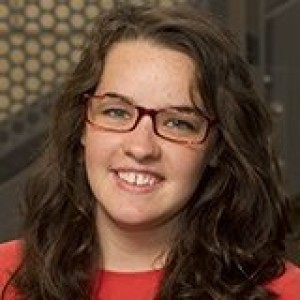
Monday Mar 08, 2021
Episode 121 - Megan Levis, full interview (rerun)
Monday Mar 08, 2021
Monday Mar 08, 2021
Life is pretty intense for Paul these days. We present this interview with Megan Levis from the 2019 Society of Catholic Scientists archives, every bit as relevant now as it was then. It was originally presented as two episodes.
- Megan Levis is a fifth-year graduate student in bioengineering at the University of Notre Dame. The topic of her talk at the annual conference of the Society of Catholic Scientists was “Created in the Image and Likeness of Man.” She described the University’s bioengineering program.
- Growing what can be deemed the beginnings of a human brain, for purposes of research, invites important ethical considerations. Levis has found resources at and through Notre Dame for deeper study of the responsibilities entailed in such research. She has worked with the John J. Reilly Center on science, technology and values. She has also been part of the Leadership Advancing Socially Engaged Research (LASER) program within the Graduate School.
- Levis participated in an NSF-supported workshop on engineering design principles of multicellular living systems. Such workshops reflect a growing nationwide interest in the ethical and societal ramifications of rapidly developing technology related to systems of living things. The interest is prompting collaboration among philosophers, scientists, ethicists and engineers.
- It’s a false dichotomy to separate faith and engineering. Levis said her advisor [Jeremiah Zartman] has been supportive of integrating values-related concerns, and that integration has made her research better. Now that there is an increased focus in bioengineering on the transfer, or translation, of knowledge from the lab bench to hospitals and clinical practice, the assessment of ethical implications is even more important.
- Organoids are systems built from human cells that begin to look like an organ. In this new field, it’s important to create room for philosophical understanding, but right now the field is dominated by engineers and scientists largely using terms that sound like clunky jargon. Philosophy tells us we need to define our terms better, Levis said. We need better ways to describe what’s going on in accessible ways that allow for ethical thinking. Engineers tend to look at every component in its specifics, but there is value in seeing how one thing is similar to something else so both may come under similar ethical principles.
- This is the second half of TSSM’s interview with Megan Levis. We talked at greater length about this graduate student’s research and its good fit with values-informed thought, with the Society of Catholic Scientists, and even literature. The Society held its third annual conference at the University of Notre Dame a few months ago.
- In Megan’s presentation to the scientists at the SCS annual conference, she posed the question: How do you distinguish and exercise ethical responsibilities when something like brain organoids are “made in the image and likeness of man rather than the image and likeness of God.” Organoids are multicellular systems built from brain tissue. Are they just cell cultures or something so akin to the human being—particularly when they are brain organoids—that ethical duties arise out of respect for human dignity? This is a relatively new field where the scientific understanding and moral consideration still must develop in tandem, she explained. A New York Times article touched on some of the questions being raised.
- Megan’s own main research project as part of her graduate studies at Notre Dame deals with microfluidics. They are devices, a kind of miniature bio-reactor, in which researchers can grow cells and small organs. Her goal is to make it easier and less expensive to make microfluidics that can be used in future research. Here are resources on microfluidics from the journal Nature.
- Her collaborations in this area came about from her meeting with a leader in microfluidics technology, Dr. Fernando Ontiveros, while they were both attending a previous SCS conference. His team is exploring new applications for microfluidics, such as the growing of organoids.
- At what point should moral concerns tied to the dignity of the human person “kick in” when dealing with the brain and brain organoids? Where do you as a person reside in the body? The existence of a capacity for rational thought is a conventional scientific benchmark for the existence of personhood, Megan said. There are many theories of the complex brain-mind-body connection with personhood. The human person is a complex creature, not reducible to the brain or body alone. Here’s an exploration of some insights from National Geographic.
- There is a real role for literature in helping us to explore the many questions that combine operational questions of engineering and more abstract, integrated thinking about persons, Megan says. She recommends renowned author Walker Percy, who explored such subjects in Lost in the Cosmos: The Last Self-Help Book. He comments that being a human is inevitably an uncomfortable process involving tensions within our nature. Our culture tends to look to science for answers to the big questions of human nature, but literature and art are pathways to answers too; literature allows us to think without predispositions and suppositions, to discover truths about ourselves and the world that transcend scientifically measurable parts. As Megan put it, the ability to wonder about the world is a gift that is transmitted sometimes through engineering and sometimes through literature and art.
- Megan has been able to work with Ontiveros while he has done research and prepared journal articles at Notre Dame. With the support of mentors and advisors, she has embraced opportunities at Notre Dame and elsewhere to spend time thinking about faith and science in relationship. She attended a conference with like-minded graduate students interested in these connections. She has appreciated the insights of SCS president Stephen Barr and microbiologist Fr. Nicanor Austriaco, OP, a speaker at this year’s SCS conference. Barr is the author of Modern Physics and Ancient Faith.
- Austriaco has recorded a podcast available through the Thomistic Institute titled The Science and Practice of Christian Prayer.
- What does Megan recommend for graduate students and others who want to advance in their bioengineering studies while staying informed and mindful about the faith-related aspects? She highlights the power of community, building friendships and conversations over time with a diverse range of people on similar journeys, including philosophy and science. One can attend relevant lectures and conferences, such as those sponsored by Notre Dame’s De Nicola Center for Ethics and Culture. She recommends the resources of the Collegium Institute. Building and updating such mindfulness is a long-term process requiring persistence, she adds.

